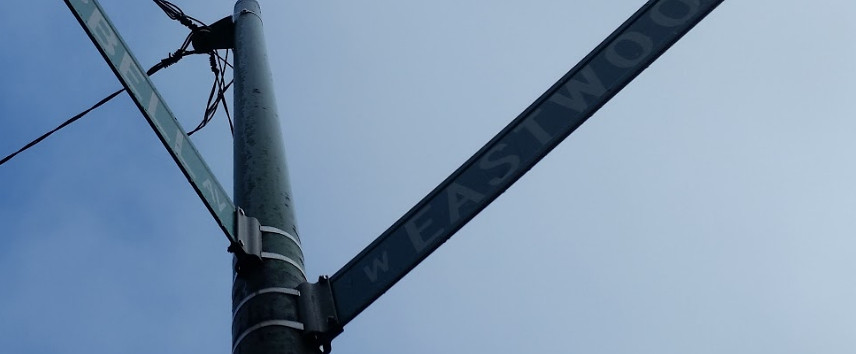Retro Review: Stan Ridgway - "The Big Heat"
This post was written by Cole Altmayer, Arts & Culture Editor.
If you’ve ever seen me in real life, you’ve probably deduced the fact that I don’t know north from south when it comes to fashion. But I can tell you at least two of the infamous “fashion faux pas” potholes I do my best to avoid: you don’t wear white after Labor Day, and you never let your patterns clash.
I always thought that second one made a lot more sense, whereas the first just felt like an arbitrarily enforced temperature advisory. Stripes on checkers, plaid on polka-dots, tweed on more tweed — these are all worth dialing the fashion police over, unless the wearer is enveloped in a healthy helping of irony.
But when it comes to music, I say let your patterns clash. When you do, you get artists like Stan Ridgway. Ridgway got his start in the underrated Los Angeles-based new wave group Wall of Voodoo, who scraped up a minor hit with “Mexican Radio” off of their stellar sophomore album “Call of the West.” Voodoo’s music met at the crossroads between the mad shuffle of synthesizer-based new wave and the soundtracks of famed composer Ennio Morricone, primarily known for his work on spaghetti Westerns. It also mixed in a few flourishes of country and Americana, with their cover of Johnny Cash’s “Ring of Fire” being a cornerstone of their discography.
After “Call of the West,” Ridgway left the band to pursue a solo career. His first solo album “The Big Heat,” released in 1986, in all of its stylistic clashing glory, is perhaps his finest hour.
The album opens with the title track, with a hypnotic synth bassline setting up the stage for what feels like a film noir: “The Big Heat,” despite all its harmonica and banjo, feels distinctly urban at its core, with each track feeling like a scene from a detective film, complete with flickering streetlights and rainwater flowing in the gutters. Even in his Voodoo days, Ridgway always wrote his songs to feel more like stories than vague poetry about love or alienation. It’s an approach unnatural to new wave, but Ridgway manages to keep the two worlds closely tied together due to the infectiously catchy way he tells such stories. The opening track has the strongest earworm chorus on the album, despite being comprised of highly conversational lyrics you never thought you’d catch yourself singing.
Wall of Voodoo always had a sly sense of humor to them: think of them as Devo or Oingo Boingo’s more pastoral, whiskey-slurping cousin. Thankfully, Ridgway’s wit was not lost in the transition to a solo career, as “The Big Heat” has some of the most novel song concepts of any genre present in its palette. We’ve got femme fatale bank robbers hijacking taxi cabs on “Drive, She Said”; we’ve got the ruminations of shady strip club owners on “Can’t Stop the Show”; we’ve even got the most blatantly honest song about theft prevention ever written in “Pick It Up (And Put It In Your Pocket).”
Even the bonus tracks — “Stormy Side of Town” being the strongest of which — are so stylistically and lyrically cohesive on their own that they don’t feel like last minute additions if you continue listening past the closing track “Camouflage.”
Speaking of which, “Camouflage” is probably the strongest single Ridgway has produced in his entire career, and a masterful display of the kind of deft genre-bending he’s known for. If you take nothing else from this review, at least take “Camouflage.” It’s as evocative as any of the famous folk music fables, but with all the polish and dazzle of an ‘80s hit.
The album’s strength lies in its ability to play both sides of a seldom-treaded stylistic border, and the way it does this is by amping up the influences on both sides. Whereas Wall of Voodoo was moody and often times obscure in their peculiar sense of mania, “The Big Heat” is more immediately accessible, not only wearing its influences on its sleeves but flaunting them proudly.
In a sense, the styles on “The Big Heat” clash more dramatically than any of Ridgway’s previous work. While in some fields that might be considered faux pas, music tends to favor the bold. And if there’s anything more bold than a full white tuxedo the day after Labor Day, it’s “The Big Heat.”




